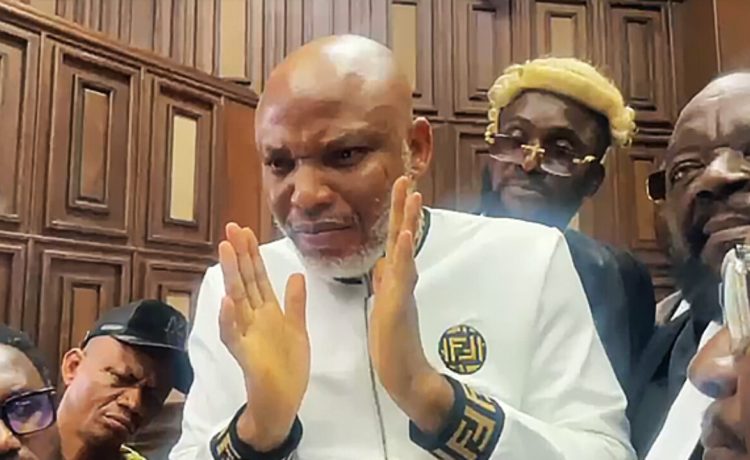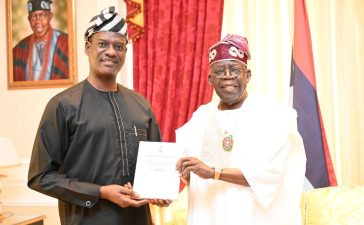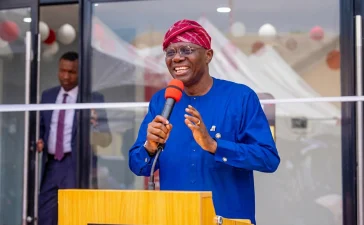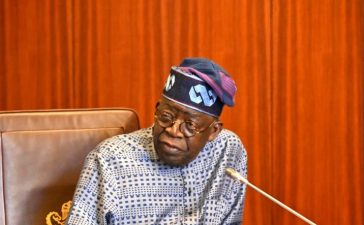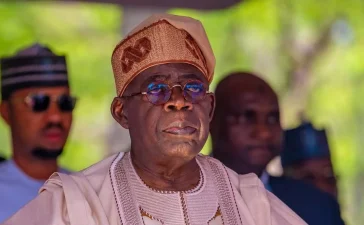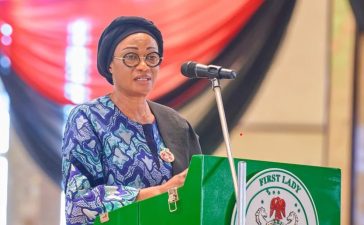The detained leader of the Indigenous People of Biafra (IPOB), Mazi Nnamdi Kanu, has filed a fresh application before the Federal High Court in Abuja, seeking the dismissal of all charges against him and his immediate release from custody.
In the motion dated October 30, 2025, Kanu, who is representing himself, argued that the charges currently before the court “are a nullity ab initio” because they have no basis under any existing Nigerian law. He filed the application pursuant to Sections 1(3), 6(6)(b), and 36(12) of the 1999 Constitution (as amended), the Evidence Act 2011, and the Terrorism (Prevention and Prohibition) Act (TPPA) 2022.
According to Kanu, the prosecution has relied on repealed laws, including the Customs and Excise Management Act (CEMA), which has been replaced by the Nigeria Customs Service Act 2023, and the Terrorism Prevention (Amendment) Act 2013, which was repealed by the TPPA 2022.
He argued that charging him under non-existent laws violates Section 36(12) of the Constitution, which prohibits trial for any offence not defined under a law in force at the time the alleged act was committed.
Kanu referenced the Supreme Court’s decision in FRN v. Kanu (SC/CR/1361/2022), insisting that lower courts are required to take judicial notice of repealed statutes under Section 122 of the Evidence Act. He submitted that failure to do so renders ongoing proceedings void.
The IPOB leader also argued that the alleged offences took place in Kenya, invoking Section 76(1)(d)(iii) of the TPPA 2022, which requires validation by a Kenyan court before such acts can be tried in Nigeria. He said the failure to obtain such validation nullifies the court’s extraterritorial jurisdiction and breaches Article 7(2) of the African Charter on Human and Peoples’ Rights.
Kanu cited past legal precedents — including Aoko v. Fagbemi (1961) and FRN v. Ifegwu (2003) — in which convictions based on non-existent laws were nullified by the courts.
He asked the court to order the prosecution to respond strictly on points of law within three days and to deliver its ruling on or before November 4, 2025. He maintained that his motion raises pure constitutional and legal issues and therefore requires no supporting affidavit.
The Federal Government is expected to respond to the application in the coming days.

